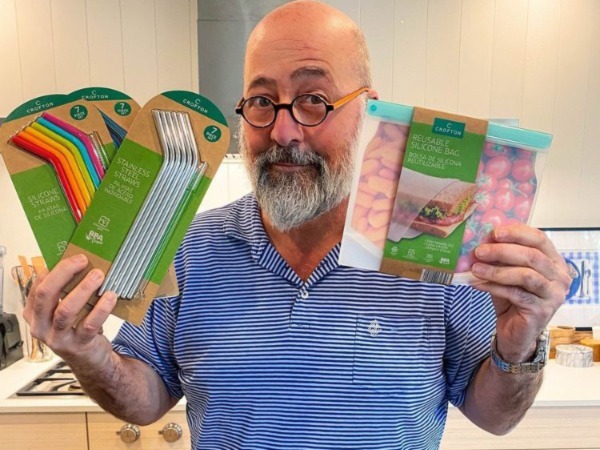
Image Credit: @chefaz/Instagram
According to the USDA, as much as 30-40% of our food supply goes to waste. That’s a lot of food tossed out or left to rot that families across the country need. Food waste happens from production to purchases, and both businesses and individuals need to do their part to reduce food waste.
That’s why celebrity chef and activist Andrew Zimmern partnered with grocery store ALDI to educate on food waste and share ALDI’s commitment to reduce 50% of food waste by 2030. Using the EPA’s “Food Recovery Hierarchy,” ALDI strives to prevent, recover, and recycle food waste, in that order.
Zimmern has long been a sustainable food activist, raising awareness on his show Bizarre Foods, which demonstrates how cultures in the U.S. and around the globe use food sustainably.
Food waste is “interrelated with our personal health crisis and our hunger crisis here in America,” Zimmern told Waste360. When every part of the supply chain agrees to do its part to reduce food waste, we can not only prevent waste but also help improve the global environmental situation and improve food access in our communities. Zimmern hopes to convince Americans that food outside our comfort zones — head-on shrimp, goat, and goose, for example — is not only delicious but also a part of a sustainable food economy.
So how can you reduce food waste at home?
Zimmern has two main tips: Have a smaller refrigerator and write down every food item you throw away. Don’t run out and buy a new, small refrigerator. Instead, remove a shelf and a bin to reduce how much food you can leave inside to waste away.
Then, keep a notepad near your garbage bin and record what you throw away. Look for patterns and then research creative solutions for using your food waste. Use vegetable scraps in soup stock. Buy smaller sizes of milk if it goes bad before you finish it. Set a reminder on your phone to use frozen meat before it spoils.
After a year of creative thinking and partnerships due to food surpluses at restaurants and shortages at home, Zimmern hopes Americans will remember how our “convenience culture” needs to change. By thinking more about sustainability and using what we have, we can conserve resources used to produce food and ensure what we have is used.
For more food waste reduction tips, check out these tips from the EPA on Preventing Wasted Food at Home, Waste not, want not, and Look, Smell, Taste, Don’t Waste.
